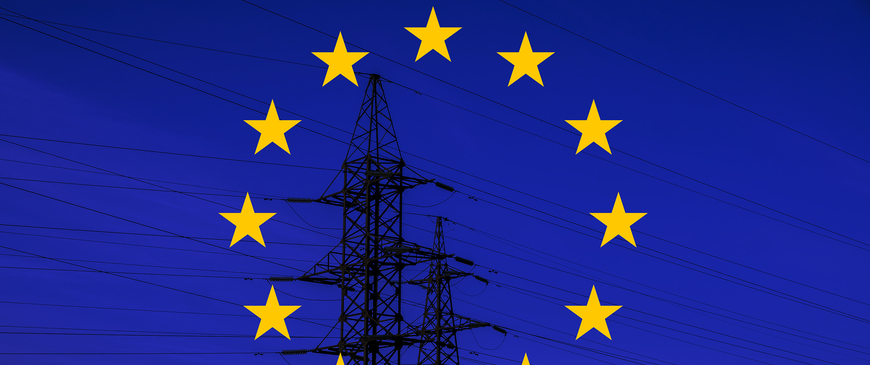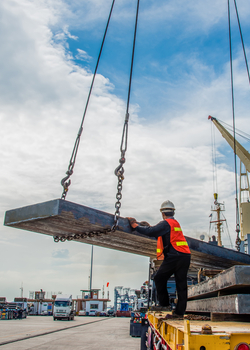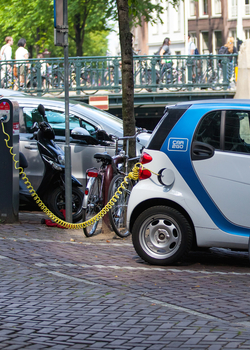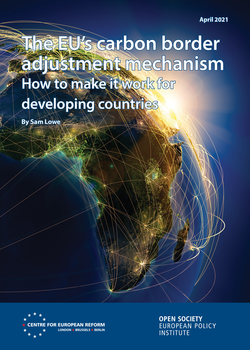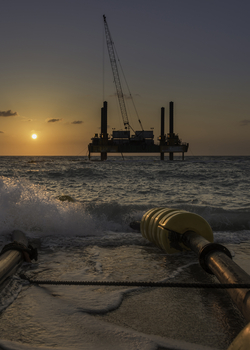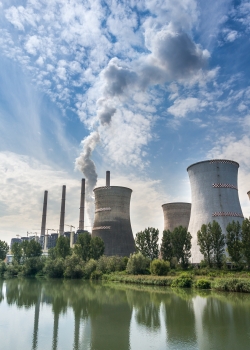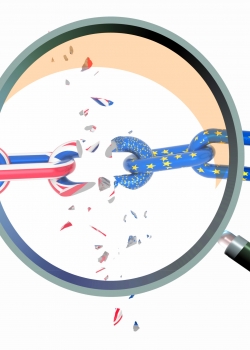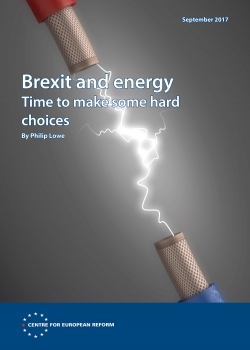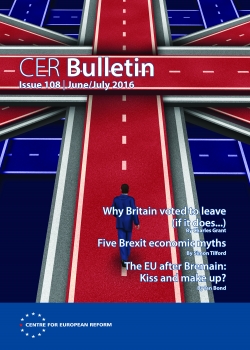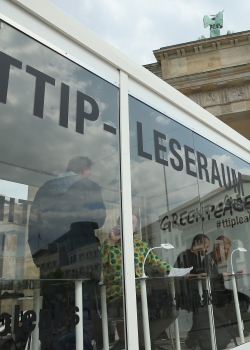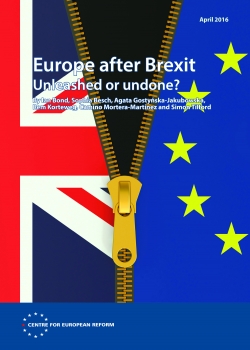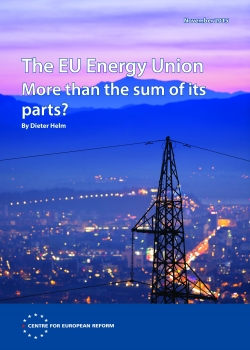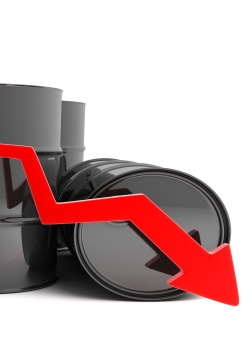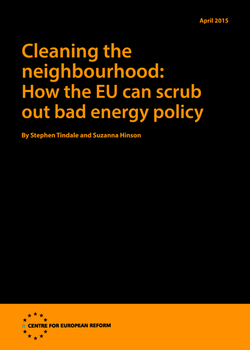Energy & climate
The 'Fit for 55' climate proposals explained
27 July 2021
The costs of the Commission’s proposals to meet the EU’s 2030 climate goals need to be distributed in a more progressive way.
Avoiding the pitfalls of an EU carbon border adjustment mechanism
05 July 2021
A leaked draft of the EU’s CBAM regulation provides fresh insights into what the Commission plans to do. But it also raises a number of tricky questions.
How to decarbonise EU road transport without summoning the gilets jaunes
19 May 2021
Extending carbon pricing to road transport will initially make driving more expensive, hurting poorer households.
The EU's carbon border adjustment mechanism: How to make it work for developing countries
22 April 2021
The EU should exempt developing country exports from its CBAM to avoid unfairly penalising countries that have contributed a much smaller share of cumulative global carbon emissions.
A tale of batteries, Brexit and EU strategic autonomy
23 October 2020
Recently leaked proposals suggest the EU wants to use the EU-UK trade deal to help on-shore an electric vehicle supply chain.
Gas heats up the eastern Mediterranean
23 April 2020
Disagreements over who gets to exploit gas in the eastern Mediterranean have raised tensions in the region, led to EU sanctions on Turkey, and made resolving the Libyan conflict more difficult. Much is now riding on Ankara’s next moves.
Should the EU tax imported CO2?
24 September 2019
An EU carbon border tax would be tricky to design, costly to implement and sure to provoke legal challenges. But if done properly there are reasons to think it could succeed.
Moving back the finishing line: The EU's progress on climate
23 September 2019
European leaders’ aim to go carbon neutral by 2050 will not happen without much tougher emissions curbs by 2030, and a sizeable increase in research and development funding.
Europe without the UK: Liberated or diminished?
13 March 2019
In 2016 the CER made ten predictions about the effect of Brexit on future EU policy. How do they stand up now, on the eve of the UK’s departure?
The fight for liberal values: Annual report 2017
06 February 2018
The CER's annual report features essays on the creation of the CER, the CER at 20, Brexit, economics and Donald Trump's impact on geopolitics, it also highlights some of our work on foreign and defence policy.
Nord Stream 2: More hot air than gas?
12 January 2018
Some EU member-states see the Nord Stream 2 gas pipeline as Russia’s latest anti-European weapon. But even if they are right, the threat can be mitigated.
Brexit and energy: Time to make some hard choices
25 September 2017
If Britain quits the EU’s single energy market, it will have to invest more in electricity generation, pay higher prices and accept a bigger state role in the energy sector.
Bulletin Issue 108 - June/July 2016
27 May 2016
- Why Britain voted to leave (if it does...), Charles Grant
- Five Brexit economic myths, Simon Tilford
- The EU after Bremain: Kiss and make up?, Ian Bond
TTIP is no reason to leave the EU
17 May 2016
Opposition to TTIP has become a rallying cry for Brexiters. They are relying on myths about trade agreements, TTIP and the NHS.
How to save the ideas behind TTIP
11 May 2016
European politicians face an increasingly hostile debate on TTIP. They need to show how TTIP avoids past trade policy failures and improves European regulation.
Europe after Brexit: Unleashed or undone?
15 April 2016
If Britain left the EU, the character of the Union would change. The UK has driven economic liberalisation and foreign policy co-operation, and has made the EU's machinery more efficient.
The EU Energy Union: More than the sum of its parts?
09 November 2015
An Energy Union built around EU-wide gas and electricity networks will help produce cheaper, greener and more secure energy for Europe.
Beware of cheap oil!
07 October 2015
Europe’s economies welcome the collapse of oil prices. But serious foreign policy problems await if oil remains cheap.
Cleaning the neighbourhood: How the EU can scrub out bad energy policy
22 April 2015
The EU should not buy electricity from countries with highly-polluting coal power stations, and should instead support efficiency and clean energy in neighbouring countries.
The Commission’s energy union ‘strategy’: A rebranded work programme
27 February 2015
President Juncker promised that his Commission would be more political. But its 'energy union' strategy is too timid and bureaucratic, and lacks focus.

